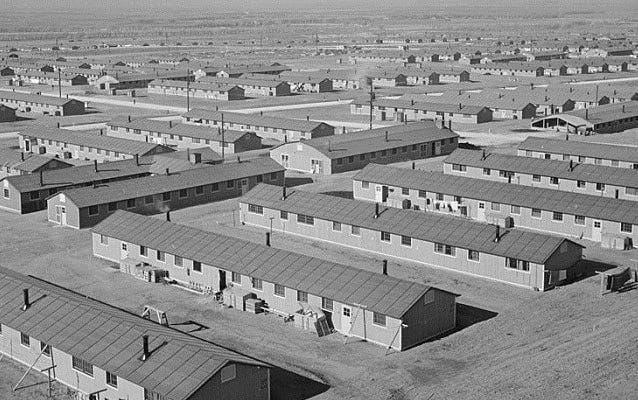
More than $3.1 million in Japanese American Confinement Sites grants that will fund preservation, restoration and education projects throughout the country are being awarded by the National Park Service.
The 22 funded projects will tell the stories of the more than 120,000 Japanese Americans, two-thirds of whom were U.S. citizens, imprisoned by the government during World War II following the attack on Pearl Harbor by Japan in 1941.
“These grants help to preserve an important piece of our nation’s history, educating generations of visitors about the injustice of the World War II confinement of Japanese Americans,” said Secretary of the Interior David Bernhardt in a release.
Since 2009, the Japanese American Confinement Sites grant program has supported a wide range of projects, including a memorial and exhibit to tell the lesser-known stories of Japanese Americans who were forced to leave their homes in Juneau, and nearby Alaskan communities during the war. The grant program has also backed the restoration of headstones and monuments at the Rohwer cemetery in Arkansas, the construction of visitors centers in Utah and Wyoming to tell the history of the Topaz and Heart Mountain incarceration sites and the national story of Japanese American World War II incarceration sites.
World War II Japanese translators honored for their service with exhibit
“Through these projects, we have the honor of educating our visitors about the strength and perseverance of the Japanese Americans incarcerated during World War II,” said David Vela, NPS deputy director.
Amache, the containment site located in Granada, Colorado is a stark reminder of a dark moment in the nation’s history, said Colorado Sen. Cory Gardner.
“I’m grateful for the continued support from the National Park Service, and the Coloradans they partner with, which help ensure the site is preserved so we can remember the grave injustice committed against Japanese Americans during World War II and never repeat our mistakes from the past,” he added.
The grants may be awarded to projects associated with the ten War Relocation Authority centers established in 1942 and more than 40 additional confinement sites. Successful project proposals are chosen through a competitive process that requires applicants to match the grant award with $1 in non-federal funds or "in-kind" contributions for every $2 they receive in federal money.
Congress established the Japanese American Confinement Sites grant program in 2006, authorizing a total of $38 million in funding for the life of the program. Today’s announcement brings the current award total to more than $32 million.
Reach Julia LeDoux at Julia@connectingvets.com.
Want to stay more connected to all the stories and resources Connecting Vets has to offer? Click here to sign up for our weekly newsletter.
